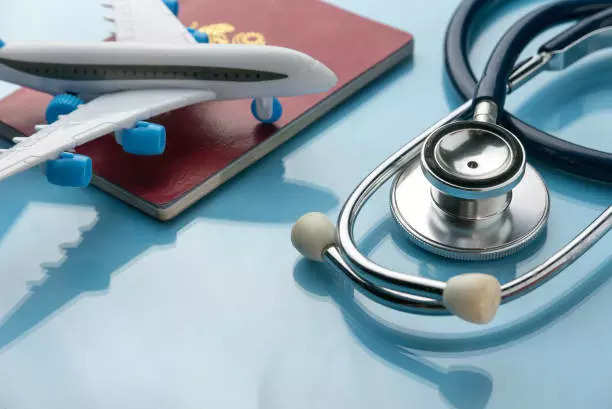India urges SCO member states to recognise potential of medical value travel, ET TravelWorld

Union Minister of State for Health, Bharati Pravin Pawar, chaired the sixth session of the Meeting of Ministers of Health of the Shanghai Corporation Organization (SCO) member states Friday, and urged them to recognise the potential of medical value travel. Establishing strong surveillance systems, promoting collaborative research and development, as well as medical countermeasures among SCO nations are vital steps towards achieving the goal of global health security, Pawar was quoted as saying in an official statement.
She urged the SCO member states to recognise the potential of medical value travel in promoting and exploring the ways to collaborate and exchange best practices within the region, the statement said.
Pawar stated that collective efforts by the SCO towards creating long-lasting positive impact for the betterment of mankind will guarantee health security for citizens, elevate global health as a top priority for economic development, and foster a united front to overcome challenges.
Highlighting the unprecedented challenges to the global healthcare landscape due to Covid-19, Pawar underlined the need for a unified approach and global collaborations to mitigate its impact, according to the statement.
“The fact that we are here today, united and committed to each other, despite the challenging times, is a testament to our dedication and resilience,” she stated.
Underscoring the role of technology in improving the last-mile delivery of healthcare services, the Union minister said, “Digital health interventions can bridge the existing gap among different stakeholders of the healthcare ecosystem. Sharing of digital public goods within SCO nations will help in achieving the goal of Universal Health Coverage through usage of technological advancements in the field of healthcare delivery.”
On the need for addressing the burden of non-communicable diseases, Pawar highlighted the “need for collaboration on holistic management of non-communicable diseases through lifestyle modification, behaviour change, and integration of NCD services at all levels of healthcare among the SCO member states as a preventive, promotive and curative approach to deal with NCDs”.

In lowering the coronavirus alert level from “critical” to plainly “alert” starting June 1, health authorities will also lift mask mandates in pharmacies and small clinics but will continue require mask wearing in large hospitals and long-term care facilities and other medical venues with high infection risks. Prior, South Korea has been requiring seven-day quarantines for virus carriers.
Director General of the World Health Organization (WHO) Dr Tedros Ghebreyesus highlighted that parallel processes are underway to address the critical gaps in international health regulations. Urging member states to treat health as an investment rather than a cost, he emphasized on revamping global health infrastructure to prepare for future health emergencies.
Embracing modern technologies while also preserving traditional systems will provide a holistic healing experience to patients across the region, Ayush Minister Sarbananda Sonowal said.
India holds the rotating Presidency of the Shanghai Corporation Organization (SCO), a regional intergovernmental organization representing 42 per cent of the world’s population, 22 per cent of its land area, and contributing 20 per cent to global GDP. The SCO comprises eight member states – China, India, Kazakhstan, Kyrgyzstan, Russia, Pakistan, Tajikistan, and Uzbekistan.
The theme of the Indian SCO Presidency is to create long-lasting positive impact for the betterment of mankind and work together towards a “SECURE SCO”.
- Published On May 13, 2023 at 12:05 PM IST
Leave a Reply Cancel reply
- Trending
- Comments
- Latest
Why the ‘great resignation’ became the ‘great stay’: labor economists
The Best Website for House Swaps? My HomeExchange Review
NVO, HMC, XRX, TSLA and more
TTMiles
Travel with me and experience each trip as a magical chapter in my travelogues. Come along with me as we discover the marvels of the globe one engrossing tale at a time.
Read more
Categories
Recent News
© 2024 Trilliontravelmiles - The one stope travel news site by Trilliontravelmiles.

















































